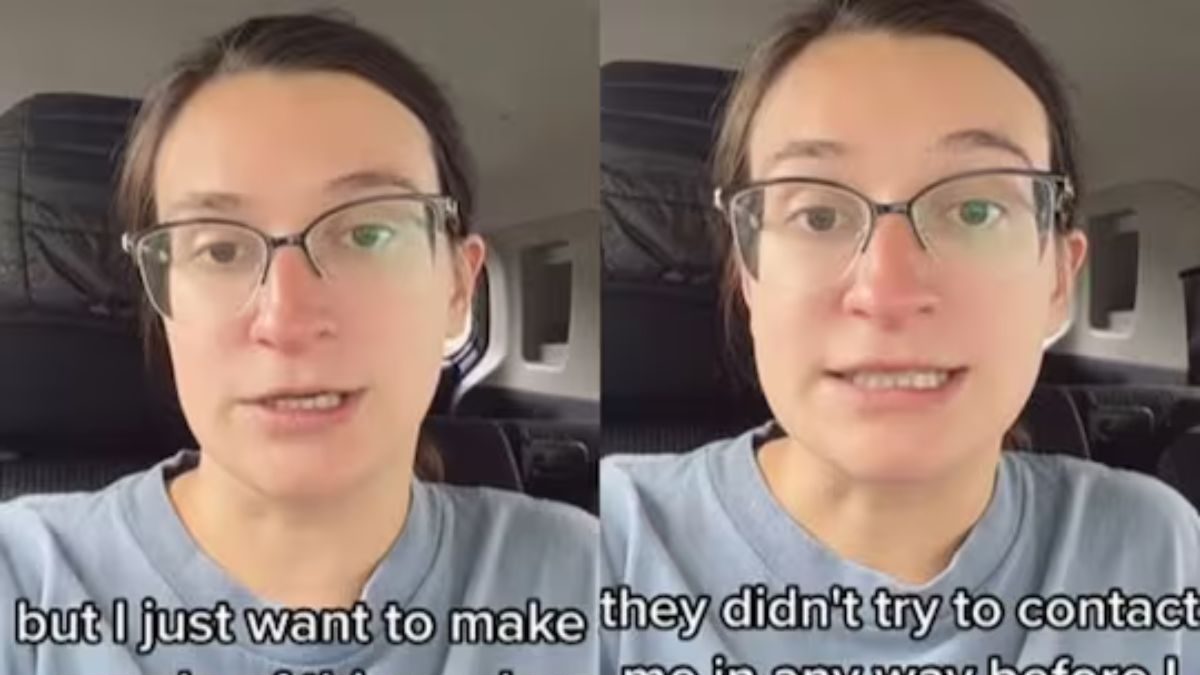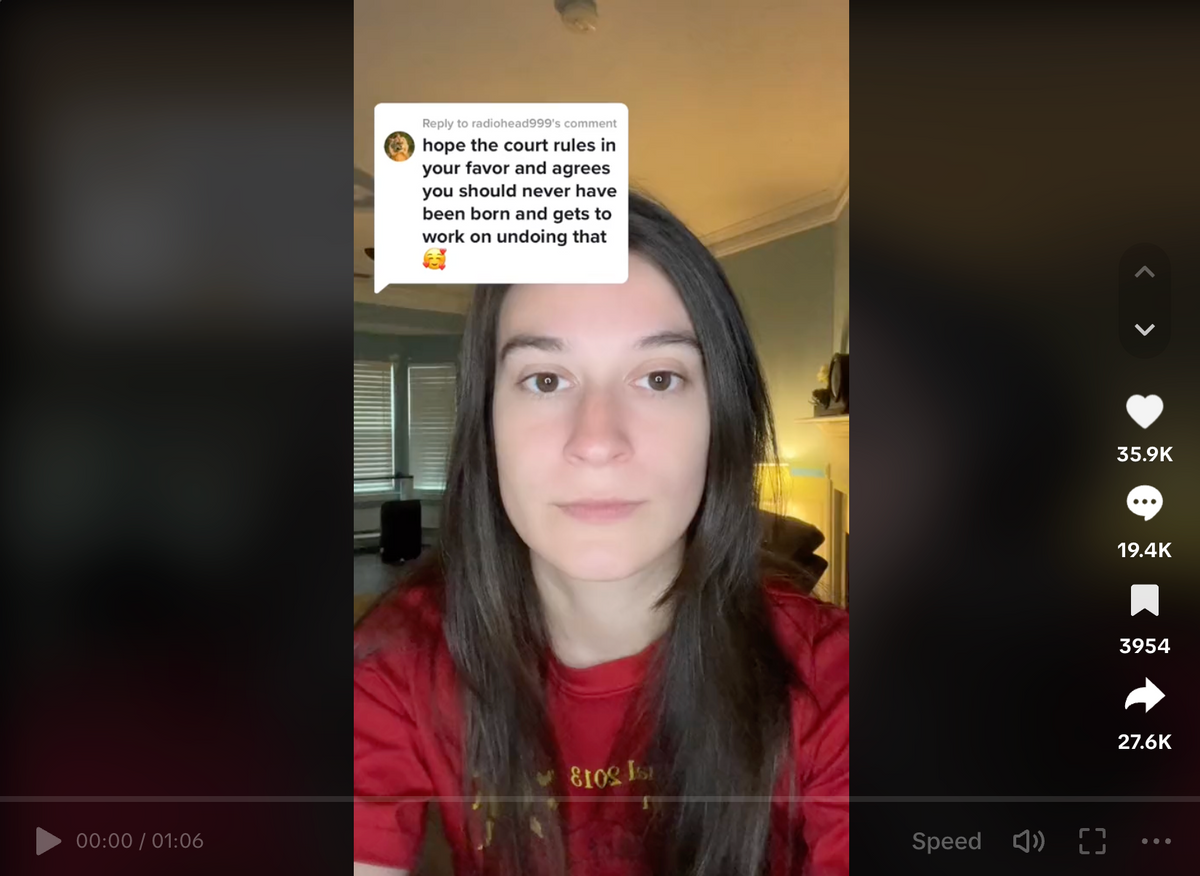Could a person truly sue their parents for the act of being born, and if so, what would that even entail? The notion of legally challenging one's very existence, while seemingly absurd, has surprisingly found a foothold in both legal discourse and the realm of viral entertainment, sparking questions about parental responsibility, individual autonomy, and the complex tapestry of human relationships.
The legal and ethical landscape surrounding this topic is, predictably, fraught with complexities. In the vast majority of jurisdictions worldwide, the simple answer is no: it is not possible to sue one's parents solely for the act of giving birth. The legal framework generally does not recognize a cause of action based on the premise of unwanted existence. The fundamental principle of law upholds the sanctity of life and the right to exist. However, recent years have seen this seemingly straightforward question be muddied by creative legal maneuvers, satirical commentary, and the ever-present influence of social media.
The core issue revolves around the legal concept of "wrongful birth" or "wrongful life" lawsuits. These claims, while often conflated in popular discussions, represent distinct legal avenues. "Wrongful birth" claims are typically brought by parents of a child born with disabilities, alleging that a medical professional's negligence deprived them of the opportunity to terminate the pregnancy or prepare for the child's condition. On the other hand, "wrongful life" lawsuits, far less common and generally unsuccessful, are brought by the child against medical professionals, arguing that the child's very existence constitutes a harm due to their disability. The case of Evie Toombes, a star showjumper born with spina bifida, is a notable example. She successfully sued her mother's doctor, claiming that he should have advised her mother to take certain precautions, which if they were taken she would not have been born. This is not the same as suing parents for giving birth.
The question of suing parents for simply existing, absent any specific harm or negligence, treads into uncharted legal territory. The inherent difficulties include: establishing a legally recognized harm from being born; defining a standard of care for parental actions; and navigating the philosophical debate about the value and meaning of life itself.
Enter the world of social media, where reality often blurs with parody, and legal concepts are twisted for comedic effect. A prominent example is the case of Kass Theaz, a TikTok creator, who gained considerable attention by jokingly claiming to have successfully sued her parents. Her satirical content, presented with a wink and a nod to her audience, sparked a viral phenomenon. The central theme was the assertion that her parents never sought her consent before bringing her into the world. She humorously said "they didn't try to contact me in anyway before i was born to see if i actually wanted to be here. The video, currently boasting over 8 million views, quickly became a talking point, illustrating the internet's penchant for turning complex subjects into easily digestible, often absurd, narratives.
This trend of viral videos, which included the "new jersey tiktoker" or a mother's claims in july 2022, reveals how the digital age amplifies even the most outlandish of claims. The satirical nature of these claims notwithstanding, they do highlight a growing sense of scrutiny aimed at the choices of others, particularly parents. The success of Theaz's comedic content demonstrates that the public finds humor in this area of discourse.
- Vegamovies 4k Ultra Your Guide To Highquality Movie Streaming More
- Mkvmoviespoint Your Ultimate Guide To Free Movie Downloads In 2024
The rise of "antinatalism," a philosophy that argues against procreation, further fuels such discussions. Mumbai businessman Raphael Samuel, who identifies as an antinatalist, exemplifies this viewpoint. Antinatalists believe that bringing new individuals into the world, potentially subjecting them to suffering, is morally wrong. While antinatalism can sometimes be associated with the conversation of suing parents, it has no bearing on the legal possibilities.
The ethical implications of suing one's parents for being born are multifaceted. First and foremost, such a legal action, if even remotely feasible, could irreparably damage familial relationships. The strain of such a lawsuit, the potential for public scrutiny, and the underlying accusations could create immense emotional turmoil within the family unit. Second, the legal implications of bringing a suit could expose delicate issues such as the emotional toll of an upbringing. Lastly, such suits could set a precedent for other claims and undermine the concept of familial love.
In a world of increasing awareness of mental health, the focus is placed on the responsibilities of parents. The responsibility of parents is to make their children into capable and self-sufficient individuals. However, this does not make them liable for their child's issues.
The legal realities remain clear: the legal landscape largely resists claims for "wrongful life". Despite the lack of legal basis, these types of viral stories and satirical content are often used to bring attention to the complexities of existence.
Here is a table summarizing Kass Theaz's information:
| Category | Details |
|---|---|
| Name | Kass Theaz |
| Profession | Satirical TikTok Creator |
| Known For | Viral TikTok videos, including a satirical claim of suing her parents. |
| Content Style | Satirical commentary on social issues, parenting, and legal concepts. |
| Notable Claim | Claimed she sued her parents for giving birth without her consent, as a joke. |
| Platform Presence | TikTok, Instagram |
| Viral Video | Video claiming she sued her parents with over 8 million views. |
| Satire Disclaimer | Includes a disclaimer indicating the satirical nature of her content. |
| Quote | They didn't try to contact me in any way before I was born to see if I actually wanted to be here." |
| Reference | Kass Theaz TikTok |
The case of Evie Toombes shows a different reality. Evie Toombes was born with spina bifida. Evie Toombes launched the landmark wrongful conception case. The star showjumper sued her moms doctor, claiming she should never have been born, and has won the right to millions in damages.
In conclusion, the concept of suing one's parents for being born remains, for all intents and purposes, a legal fantasy. However, the stories of those like Kass Theaz, combined with the ethical considerations surrounding antinatalism and parental responsibility, underscore that these legal complexities are the subject of cultural and moral debate.
- Explore Masa49 Entertainment Community How To Get Started
- Hd Hub 4u Your Guide To Streaming Bollywood Movies 2024


